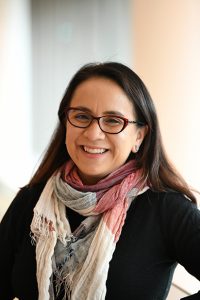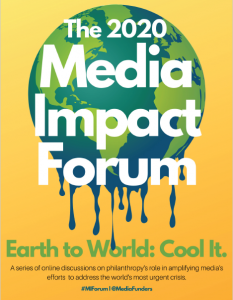The Promise of Civic Science Philanthropy: An Interview with Karen Andrade
July 7, 2020
As part of the 2020 Media Impact Forum, Elizabeth Christopherson, President and CEO of the Rita Allen Foundation, interviewed Science Philanthropy Alliance Civic Science Fellow Karen Andrade about lessons funders can take from civic science. The below is adapted and expanded from their conversation.
Elizabeth Christopherson: Karen, could you share what is top of your mind right now?

Karen Andrade: Top of mind for me right now is how central are the topics of racial equity to civic science. Particularly when we start thinking deeply about people’s perception, understanding, and attitudes of science during a time of crisis.
A key belief of mine is that a lack of access to scientific knowledge, research, and training translates into power inequities. I learned this firsthand when I worked for the City and County of San Francisco in their Department of the Environment, and I saw how community voice struggled to be heard when it did not have access to science. Community organizations struggled to hire a scientist or statistician who could amplify their voice and lived experience for decision-makers.
In many cases, they also struggled because of a legacy of not having access to being imbedded in science, from educational opportunities to using the language of research. This lack of access to science and scientific knowledge perpetuates inequities. That is always top of my mind.
What in your background drew you to civic science, and why does this work matter to you?
I am an interdisciplinary environmental health researcher who straddles many different spaces. I have conducted research in basic science and social science, always with eye to community engagement. The reason why I was attracted to science and to graduate school was a desire to use science to improve people’s lives. So, as I shared before, the question of who gets to access and engage with science has been very important to me for a long time.
When I arrived at UC Berkeley, I was inspired to lead a project—the UC Berkeley Science Shop—in which we brought research questions from the surrounding community and connected them to researchers on campus. The synergy I saw there, the potential for collaborative growth, for sharing of power and knowledge—and how this helps build a more just society—is why civic science matters to me.
What would you say is the current pivot point for science communication?

The big shift for me is that now we are starting to grapple with how we make inclusive spaces where all peoples can receive information, but beyond that, start forging relationships that change perspectives, empower diverse voices, and position them to take action in their own community.
As we think about who is doing this kind of science engagement work currently, who do we need to bring to the table?
I think that we need to first start to see what are the internal legacies and practices that perpetuate racism, sexism, and many other ills in our institutions. This work starts with us as individuals, but it is key to move on to systems. I experienced science as a difficult place, where I was brought in but then not acknowledged for my difference. I think we need to lean into discomfort and engage with and make space for what makes us uncomfortable. Then we can bring communities of all types into respectful, aware spaces where they can thrive.
A dear colleague of mine said something that resonated deeply. He said we need to reframe this moment—it isn’t just about taking power or giving away power to new voices or types of knowledge. Rather, bringing in new voices is additive. We are adding power, knowledge, and beauty to our spaces, and particularly to science.
“Bringing in new voices is additive. We are adding power, knowledge, and beauty to our spaces, and particularly to science.”
What is the role of philanthropy in the civic science ecosystem?
Philanthropists are influencers, conveners, and facilitators in our civic landscape. During this pandemic their role has come under the spotlight, particularly for their role in funding and influencing science. As Sir Jeremy Farrar, Director of the Wellcome Trust, said at a recent meeting convened by my host organization, the Science Philanthropy Alliance—if philanthropy doesn’t “ensure that science is brought to the maximum benefit of the maximum number of people in an equitable and accessible way” then the scientific and philanthropic community will not be working toward the just, collaborative world they want to be part of.
Funders are well-poised to take on the complexity and interrelatedness of science engagement—to encourage others to stay open to learning and change, and to support the fact that science cannot any longer be presumed to stay in the lab. The benefits and power of science will not be equally distributed without intentionality.
In other words, seeing the need and relevance of civic science in their framing and work is an important shift that funders are well-poised to deeply engage with. As a Civic Science Fellow, I come to philanthropy out of a place of hope. I am here because I see so much potential for philanthropy to seed examples of hope and change.
“As a Civic Science Fellow, I come to philanthropy out of a place of hope. I am here because I see so much potential for philanthropy to seed examples of hope and change.”